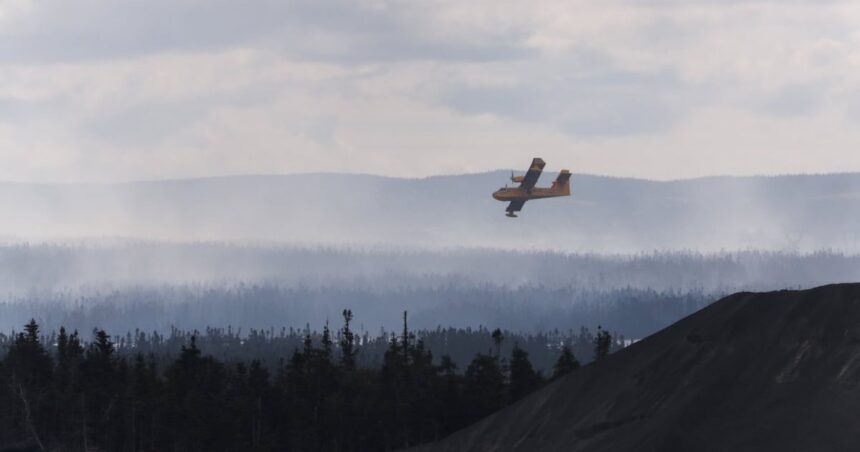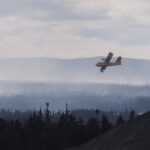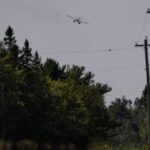A dire situation has unfolded in central Newfoundland as the town of Badger’s water supply has completely run dry amid unprecedented dry conditions that continue to fuel wildfires across the region. The troubling development marks a critical escalation in what provincial officials are now calling one of the most challenging wildfire seasons in recent memory.
“We’ve never seen our reservoir depleted to this extent,” said Mayor Jerry Dean in an emergency announcement Tuesday. “Our municipal water system is effectively non-operational until we can address this crisis.”
The water shortage crisis coincides with raging wildfires that have already consumed over 25,000 hectares across central Newfoundland. The provincial Department of Forestry confirmed that firefighting efforts have been severely hampered by both the lack of precipitation and now the compromised water resources in multiple communities.
Provincial officials report that Badger’s water reservoir levels dropped precipitously over the past two weeks as drought conditions intensified. The community of approximately 700 residents now relies entirely on emergency water deliveries coordinated by provincial emergency services.
“We’re working around the clock to ensure residents have access to potable water while simultaneously battling these fires,” said Jeff Motty, Newfoundland and Labrador’s Director of Emergency Management. “This is a two-front crisis that requires extraordinary measures.”
The Canadian Forest Service has deployed additional resources to the region, including water bombers from neighboring provinces. However, officials acknowledge that without significant rainfall, containing the spread of fires while managing water scarcity presents unprecedented challenges.
Climate scientists from Memorial University have indicated that the current conditions align with projected climate change impacts for the region. “What we’re witnessing is consistent with models predicting more frequent extreme weather events,” noted Dr. Sarah Finley, climatologist at Memorial University. “The combination of prolonged drought and higher temperatures creates ideal conditions for wildfire propagation.”
The provincial government has implemented Level 4 water restrictions across central Newfoundland communities and established emergency response centers in Grand Falls-Windsor and Gander. Officials have also issued evacuation standby notices for several communities within proximity to the advancing fire lines.
In response to the escalating crisis, Prime Minister Justin Trudeau announced additional federal support during a press conference in Ottawa. “We are mobilizing all available resources to support Newfoundland and Labrador during this challenging time,” Trudeau stated. “The Canadian Armed Forces stand ready to provide assistance if provincial resources become overwhelmed.”
The economic impact of the wildfires and water shortage extends beyond immediate safety concerns. Tourism operators report widespread cancellations during what should be the peak season, while the forestry sector faces significant losses with valuable timber stands threatened by advancing fires.
Local businesses in Badger have transformed into impromptu relief centers, with the Badger Community Center now serving as the primary distribution point for bottled water and emergency supplies. “Our community has always been resilient, but this tests us like never before,” said local business owner Margaret Pilgrim. “We’re all pulling together, but we desperately need rain.”
As firefighters continue their battle against the spreading wildfires and communities struggle with water scarcity, the question remains: is this crisis a glimpse into Newfoundland’s new climate reality, and how will the province adapt its infrastructure and emergency response systems to meet these emerging challenges?























